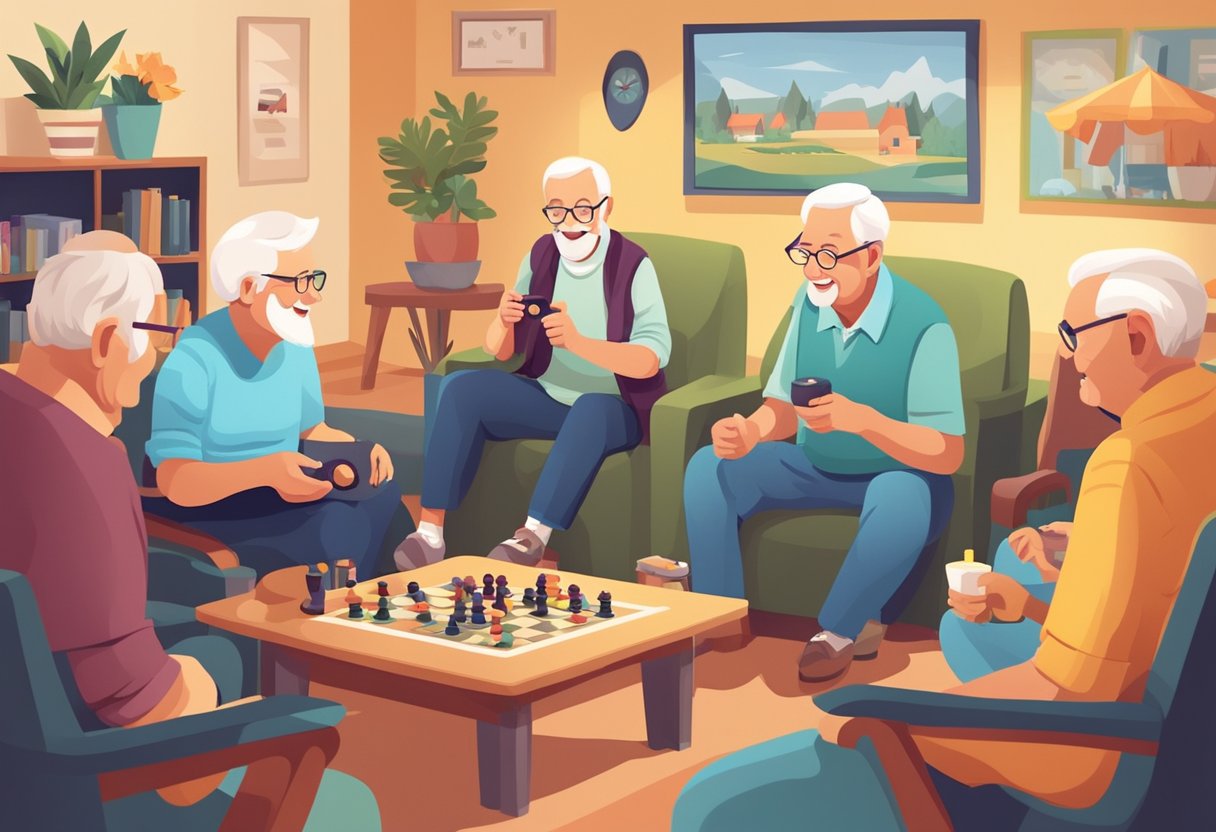
Maintaining strong relationships and staying socially active can have a significant impact on your health. Research suggests that social interaction can help improve mental and physical health, reducing the risk of conditions associated with isolation like depression, chronic illness, and cognitive decline. Reaching out to family and friends, partaking in community activities, or even adopting a pet can create meaningful connections.
It’s important to recognize that loneliness is not a reflection of the number of people around you, but rather the quality of your social interactions. Simple strategies like joining groups with similar interests, participating in local events, or volunteering can open doors to new friendships and experiences. With effort and a little creativity, you can cultivate a social network that supports your emotional and physical health, enriching your senior years with joy and companionship.
Understanding Loneliness in Senior Years

As you age, feeling disconnected can have profound emotional effects and it’s important to recognize the signs of loneliness.
The Emotional Impact of Aging
Aging can bring about significant changes in your life, including retirement, the loss of loved ones, and health challenges. These transitions can affect your emotional well-being. It might lead to a sense of loss or a reduction in self-esteem. Acknowledging these emotions is the first step in addressing loneliness.
Identifying Loneliness
Loneliness is not always obvious. It’s crucial to watch for subtle signs like a decrease in social interactions, changes in mood, or a withdrawal from activities you once enjoyed. Understanding that loneliness can manifest in various ways is essential for finding the right support and resources that can help mitigate these feelings.
Cultivating Social Connections
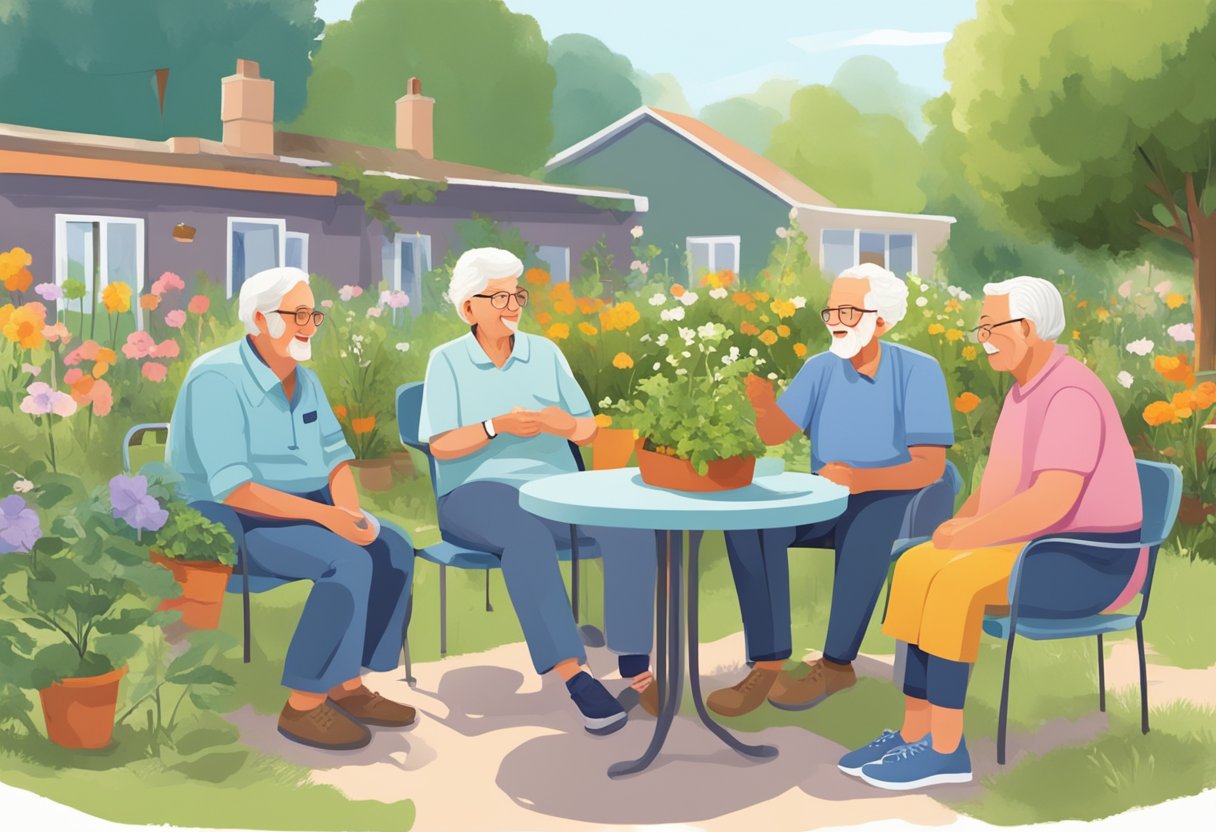
Creating and maintaining social connections are key to avoiding loneliness, especially as you get older. Engaging in community activities and sharing your time can lead to meaningful friendships and a more fulfilling life.
Joining Social Groups
- Explore Your Interests: Consider groups that align with hobbies you love, whether it’s a book club, a gardening society, or a walking group.
- Find Local Groups: Check your local community center, church, or library for groups specifically aimed at seniors.
Some were specifically mentioned in the search results like the National Council on Aging which provides resources on staying socially connected.
Volunteering and Community Engagement
- Offer Your Skills: Use your lifetime of skills and experience to contribute, such as mentoring or helping with local events.
- Connect With Charities: Local charities often look for volunteers and it’s a great way to meet a variety of people.
For more on how volunteering can impact social isolation, see the suggestions from the National Institute on Aging.
Embracing Technology for Communication
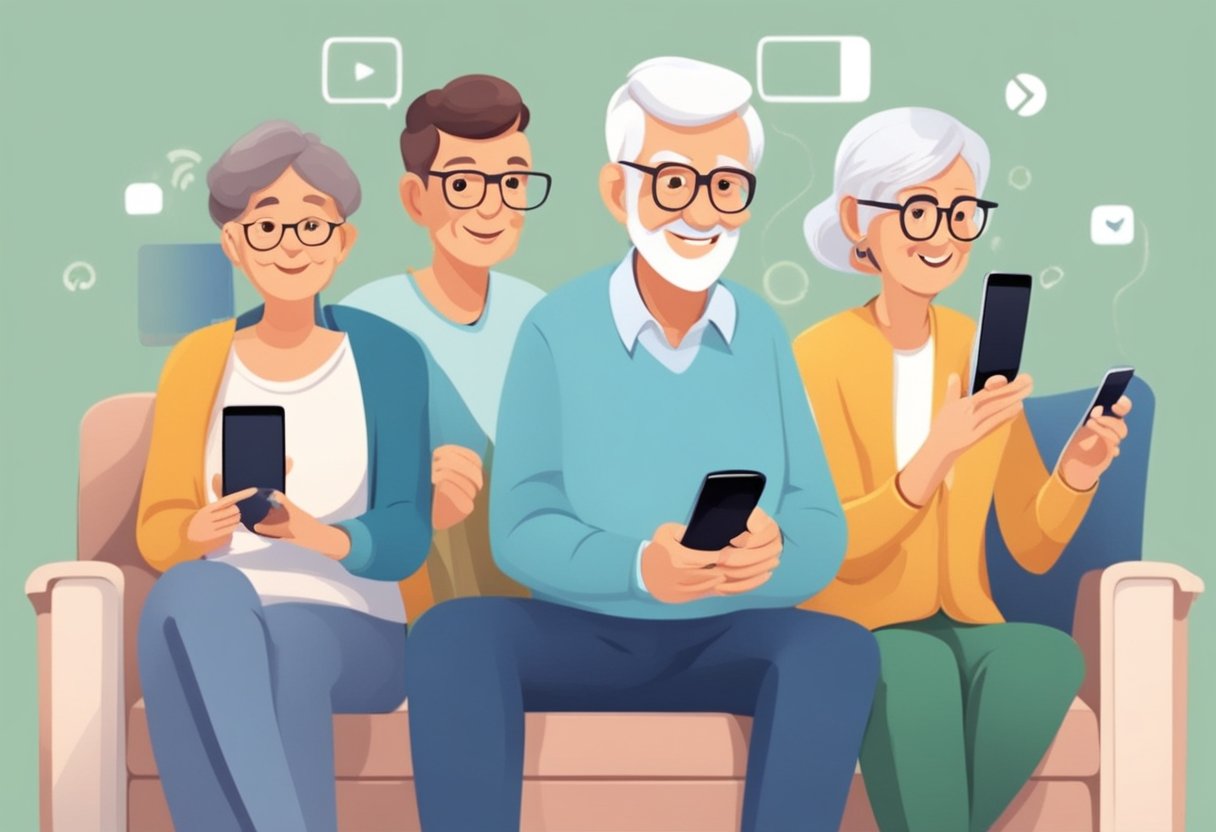
Technology has greatly expanded options for staying connected. You now have the ability to bridge the gap of distance and time with a few clicks or taps, all from the comfort of your home.
Connect by Learning to Use Social Media
Social media can be a powerful tool to keep in touch with friends and family. Sites like Facebook, Twitter, and Instagram allow you to see updates and photos from your loved ones. Start by creating a profile and adding your close contacts. You can join groups that match your interests to connect with people who share your hobbies.
- Facebook: Share updates, photos, and join groups.
- Instagram: Follow your family’s photographic journey.
- Twitter: Keep up with news and quick updates from friends.
Video Calling Friends and Family
Video calls make it feel like you’re in the same room with the person you’re talking to. Applications such as Zoom or Skype can help you schedule and conduct video calls. Make sure your device has a camera and microphone so you can fully participate.
- Zoom: Host virtual get-togethers or family events.
- Skype: Make direct video calls to other Skype users for free.
- Facetime: If you and your family use Apple devices, Facetime is integrated and easy to use.
To enhance the clarity of your calls:
- Find a quiet space.
- Ensure good lighting.
- Test your internet connection.
By embracing these tools, you’re taking a significant step towards combating loneliness and staying connected with those who matter most.
Engaging in Hobbies and Personal Interests
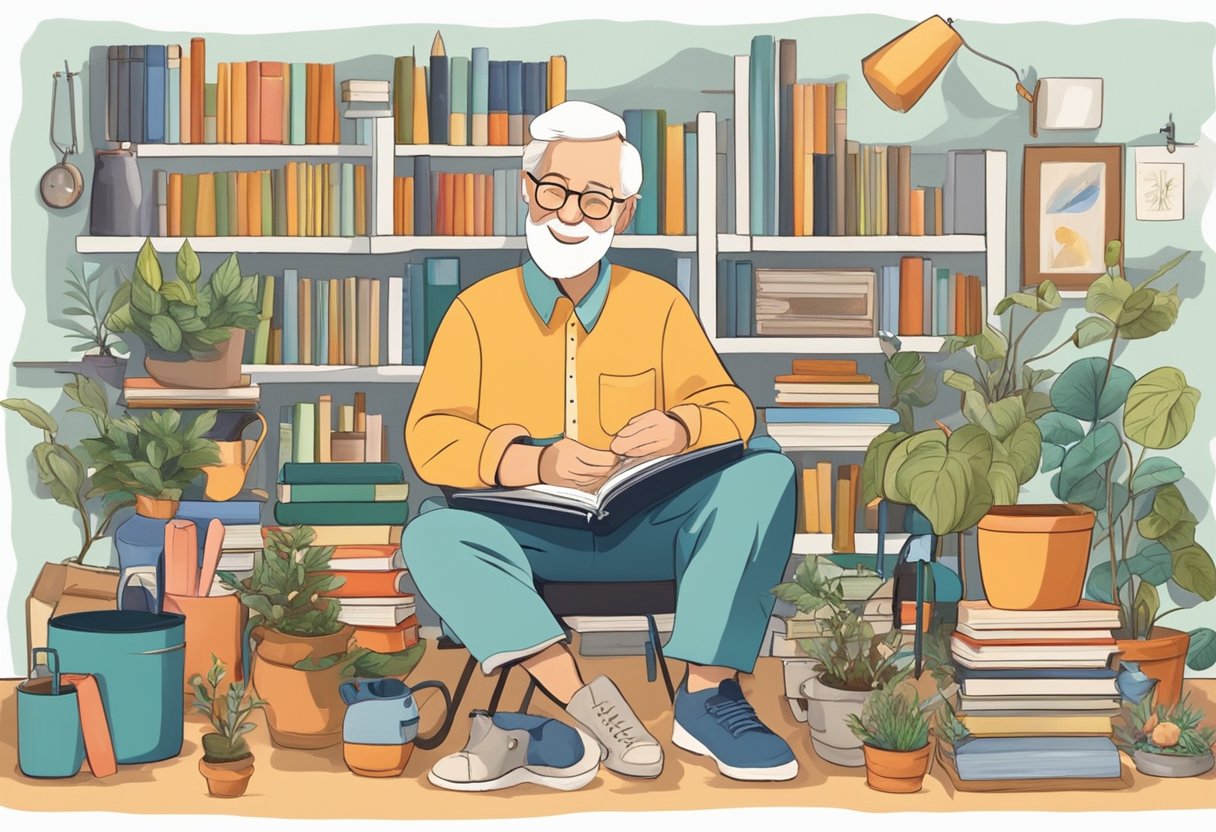
Exploring hobbies and personal interests can greatly enrich your life, helping to combat loneliness and keep your mind and spirit vibrant.
Discovering New Passions
If you haven’t yet found a hobby that resonates with you, it’s never too late to start. Consider visiting local community centers or browsing events and classes to find something that piques your interest. From painting and gardening to dancing or playing a musical instrument, new hobbies can open doors to social circles and satisfying solo endeavors.
Continuing Lifelong Interests and Make New Friends
Your existing passions can continue to cultivate a sense of purpose and connection. Join clubs or online communities that share your love for specific activities, such as book clubs, knitting circles, or chess groups. This helps maintain your identity while also providing social interaction and mental stimulation. Engaging deeply in your long-cherished interests can also lead to mentoring opportunities, where you share your skills and wisdom with others, further enriching your sense of community.
Staying Physically Active
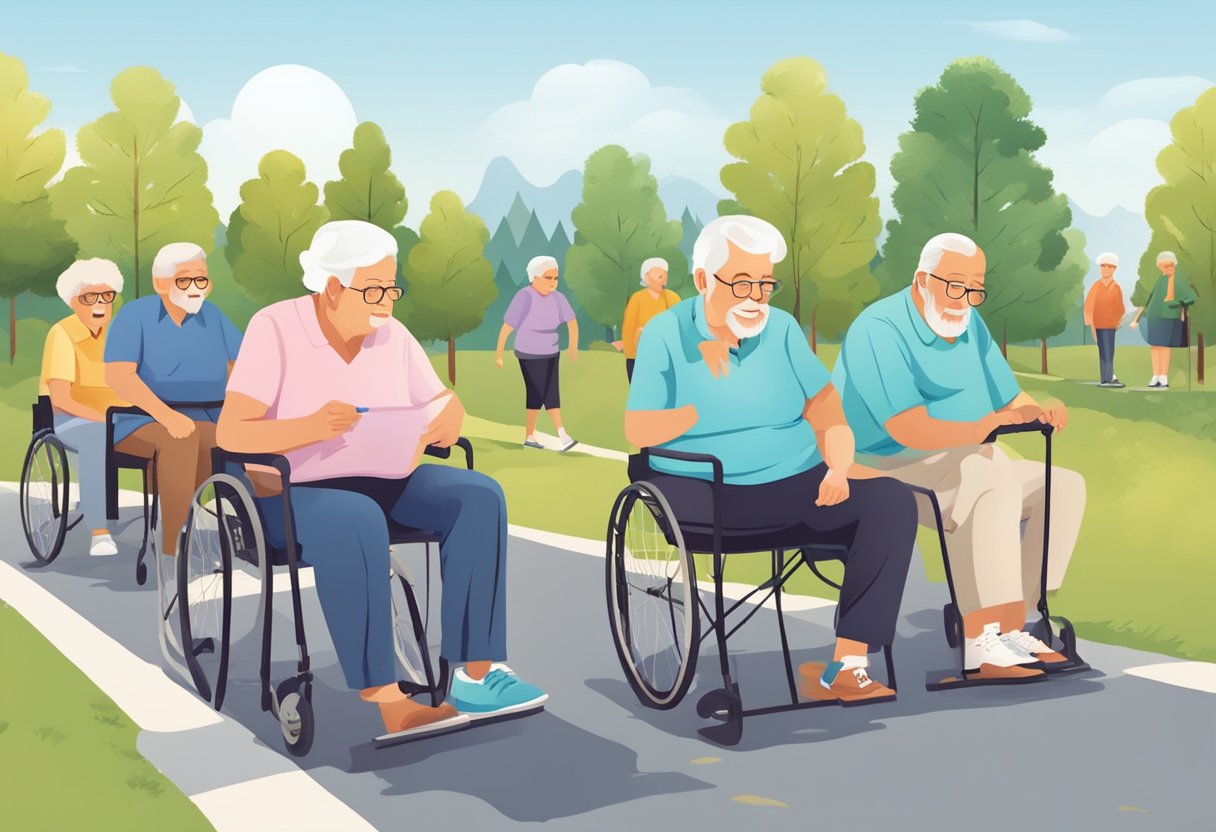
Maintaining a routine of physical activity is essential for your health and social well-being. These exercises help keep your body strong and your mind engaged.
Participating in Exercise Groups
Joining exercise groups offers you the chance to meet new people while improving your physical fitness. Whether it’s a weekly yoga class or a water aerobics session, being a part of a group keeps you accountable and adds a social component to your exercise regimen. Check out local community centers or fitness clubs for groups tailored to seniors.
Exploring Outdoor Activities
Getting outside for activities such as walking, hiking, or gardening can significantly boost your mood and provide a dose of vitamin D. Outdoor activities can range from leisurely strolls in the park to more structured walking tours. Plus, these activities often present opportunities to interact with others and enjoy nature’s scenery. Consider joining a walking club to combine the benefits of exercise with the pleasure of socializing.
The Hazards of Social Isolation

As you age, maintaining social connections becomes increasingly important for your well-being. It’s essential to be aware of the potential hazards that social isolation can pose to your health.
Physical Health Risks:
- Cardiovascular Issues: Social isolation can impact your heart health. Studies have noted a significant association between social isolation and an increased risk of heart disease and stroke. It’s like a puzzle where each piece, from friendships to family interactions, contributes to the complete picture of your heart health.
- Immune System Complications: When you’re socially isolated, your body’s defense mechanisms may suffer. A lack of social contact has been linked to a weakened immune system, leaving you more vulnerable to infections and illnesses.
Mental Health Concerns:
- Emotional Well-Being: Feeling disconnected can lead to depression and anxiety. Your emotional health is as important as your physical health, and nurturing relationships provide a buffer against these mental health challenges.
Staying socially connected can sometimes be challenging, but remembering the risks of isolation should be the motivation to take that step out the door or pick up the phone. Your heart and mind will thank you for it.
